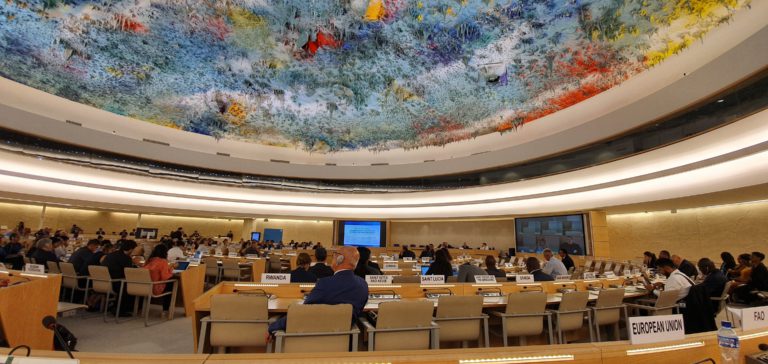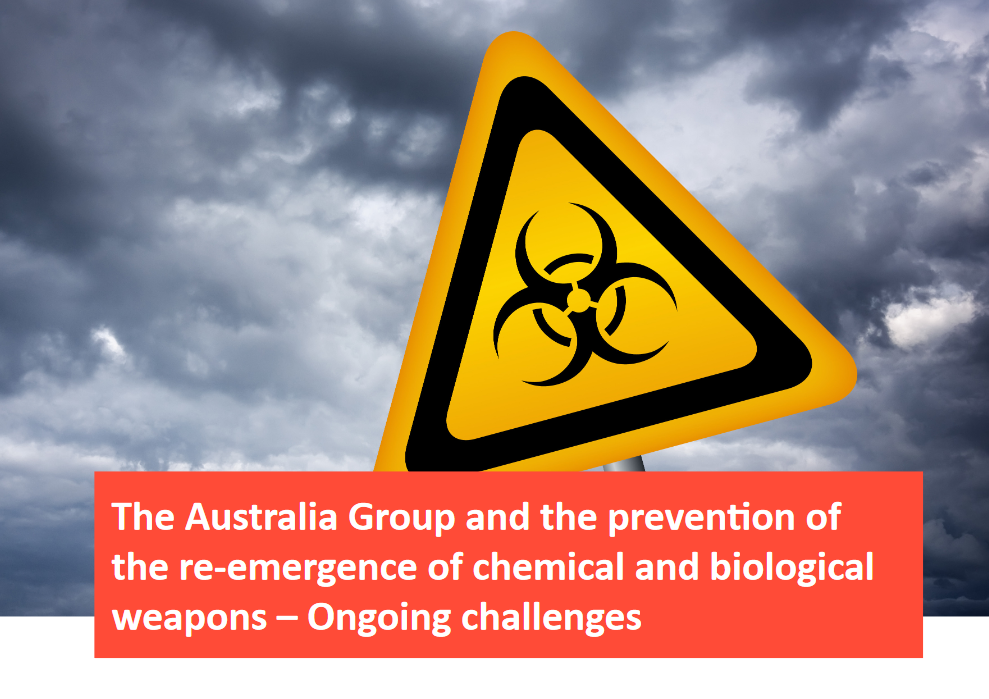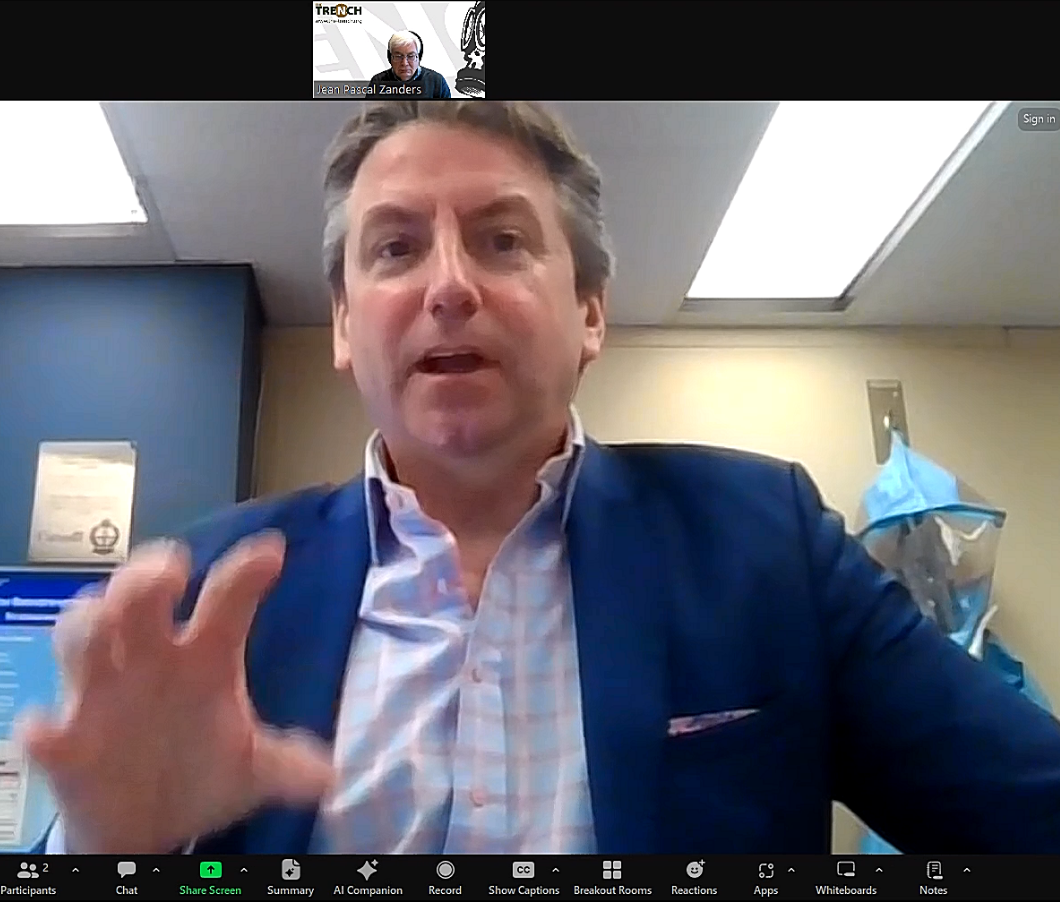A very thin gruel, indeed
On 23 September, President Donald Trump addressed the UN General Assembly (UNGA). In an unexpected move, he called on the world’s nations to halt the development of biological weapons (BW). Referring to the COVID pandemic five years earlier and reckless laboratory experiments, he announced a US-led international effort to strengthen the Biological and Toxin Weapons Convention (BTWC), and proposed an artificial intelligence (AI)-driven verification system. After more than two decades of opposition, his speech seemed to indicate that Washington might embrace verification machinery for the BTWC. However, the less than two minutes he devoted to the topic contained little substance …
Biological weapons: Kazakhstan’s proposal for an international organisation five years later
On 23 September 2020, amid the Severe Acute Respiratory Syndrome Coronavirus 2 (SARS-CoV-2) pandemic, President Kassym-Jomart Tokayev of Kazakhstan addressed the UN General Assembly (UNGA) and advanced the establishment of an International Agency for Biosafety (IABS). Just over five years later, on 14 October 2025, the Kazakh Ministry for Foreign Affairs organised a one-day seminar in Almaty. Its title: 50th Anniversary of the BTWC: From Commitment to Action – the International Agency for Biological Security (IABS) initiative. The timing of the seminar was perfect. At the start of the month, the Chairperson of the Working Group (WG) on the Strengthening …
Challenges to the BTWC and CWC and questions for the Pugwash CBW Working Group
The Pugwash Chemical and Biological Weapons Working Group (CBW WG) held its first virtual event on 3 October 2025. The primary objective was to gather feedback on potential topics for the WG’s development, thereby gaining a deeper understanding of the WG’s specific role in the current academic and civil society landscape. Registrants completed a small questionnaire covering both topics. Seventy-five persons from all continents, including the Middle East and North Africa, participated. Summary Jean Pascal Zanders and Lizeka Tandwa opened the meeting. Götz Neuneck, Chairperson of the Council, introduced Pugwash, its history, current activities and working methodologies. Richard Guthrie (Pugwash …
Relaunching the Pugwash CBW Working Group (Event)
Pugwash Conferences on Science and World Affairs Working Group on Chemical and Biological Weapons Relaunching the Pugwash CBW Working Group Date: Friday, 3 October 2025. Time: UTC 13:00 – 14:30 (15:00 – 16:30 CEST). Duration: 60 – 90 minutes Place: Zoom virtual meeting (Registration required) Agenda: Welcome & brief introduction, Jean Pascal Zanders and Lizeka Tandwa, CBW WG Co-coordinators Welcome/Introduction to Pugwash by Götz Neuneck, Chair of the Pugwash Council Introduction to the CBW WG and challenges in the CBW area Status of the CBW regime Biological and toxin weapons, Richard Guthrie Chemical weapons, Mina Rozei Discussion What unique …
Contributions from the 1925 Geneva Protocol to the BTWC
(Speaking Points at the “50th anniversary of the entry into force of the Biological Weapons Convention” event held at the Palais des Nations, Geneva, 26 March 2025) Before the Geneva Protocol Evolution of the ‘poison concept’ Starting in the early 19th century, semantic separation of disease from the poison concept because of evolving medical practice and growing acceptance of the germ theory. Semantic specialisation between poison (toxic substances from nature) and asphyxiating and deleterious gases (products from science and industrialisation). 1899 Hague Peace Conference Semantic bifurcation between poison and asphyxiating gases is a reality with legal consequences. Prohibition of the …
Biological Weapons Disarmament Reaches 50
Fifty years ago, on 26 March 1975, the Convention on the Prohibition of the Development, Production and Stockpiling of Bacteriological (Biological) and Toxin Weapons and on their Destruction entered into force. The Biological and Toxin Weapons Convention (BTWC) was the first multilateral treaty to outlaw a discrete weaponry category comprehensively. No party to the treaty can develop, produce, otherwise acquire, or retain biological and toxin weapons. Nor can state parties use such weapons in any way or under any circumstances. On its 50th anniversary, 188 states are party to the BTWC. Only nine are on the outside. Four signed the …
Aiming for a future verification system for the BTWC
This posting is based on comments made during a panel on ‘The Future of Biological Weapons’ at the annual conference of the EU Non-Proliferation and Disarmament Consortium, held in Brussels on 13 November 2024. Previously 1996 was a year of optimism. Held between the opening for signature (January 1993) and entry into force (April 1997) of the Chemical Weapons Convention (CWC), the Fourth Review Conference of the Biological and Toxin Weapons Convention (BTWC) decided to give the Ad Hoc Group (AHG) a mandate to negotiate a legally binding protocol to equip the BTWC with, among other things, a verification …
Announcement: BWC Advanced Education Course
[Applications open until 29 September] State Parties, particularly from the Global South, often lack the resources, knowledge, and expertise to participate in the Biological Weapons Convention (BWC) diplomatic process more meaningfully. To address this challenge, UNIDIR, Diplo Foundation and FRS are organizing the BWC Advanced Education Course (BWCedu). The course will equip key stakeholders – government officials in capital with responsibilities in BWC implementation, aspiring and active diplomats and life scientists working on BWC issues and biological threats – with the essential knowledge, skills and expertise to actively participate in the BWC diplomatic process and thus contribute to a stronger …
The Australia Group and the prevention of the re-emergence of chemical and biological weapons
The European Union Non-Proliferation and Disarmament Consortium held its 11th Consultative Meeting in Brussels on 15 and 16 September 2022. Its central theme was the “Topicality of multilateral export control regimes”. On the second day, one of the four breakout sessions addressed the Australia Group, an informal arrangement coordinating technology transfer controls relating to dual-use agents and equipment with potential relevance for developing and producing chemical and biological weapons. Introducers were Ms Esmée de Bruin (Netherlands), Dr Mónica Chinchilla (Spain) and Ms Élisande Nexon, PharmD (France). I had the honour of moderating the session. The three speakers have different backgrounds, …
Response is failure in the primary mission of preventing CBW
The Global Partnership against the Spread of Materials and Weapons of Mass Destruction has now been around for over two decades. In the wake of the terrorist attacks against the US in September 2001, it started out as an effort to mobilise the resources of the G8 members to prevent terrorist acquisition of nuclear, biological and chemical weapons, and related materials. The weapons, technologies and skills available from the former Soviet Union presented a significant proliferation risk, which the US was already addressing through the Cooperative Threat Reduction (CTR) programme. Now comprising 31 members, the Global Partnership (GP) played a …










